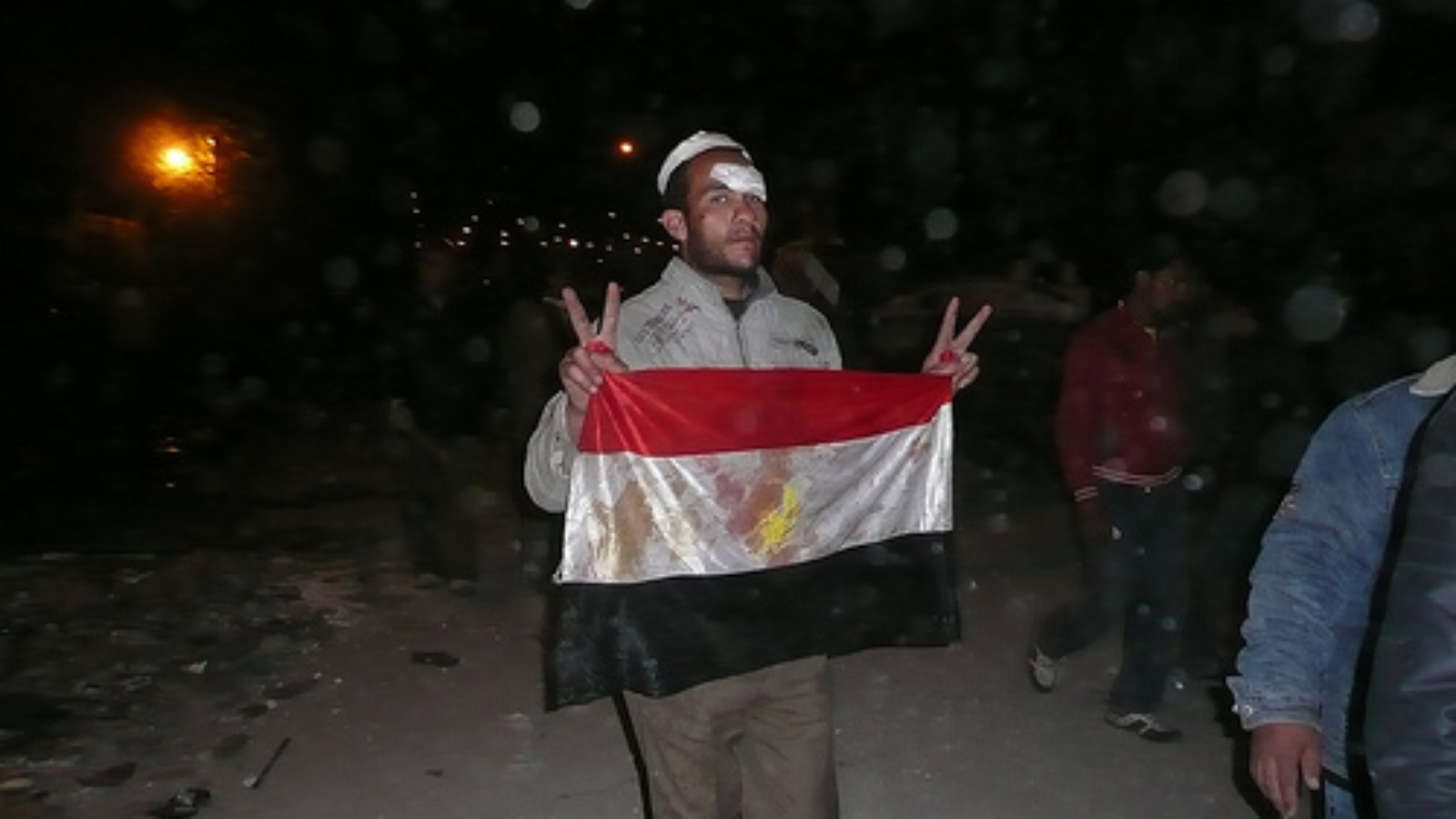By Simon Baker, as told over a series of phone conversations to David Black of World Policy Journal.
UPDATE: Sunday, Feb. 6, 3:24PM: After military authorities conviscated his passport earlier today, our correspondent in Tahrir Square asked the World Policy blog to remove his byline from previous posts and to publish his dispatches anonymously.
**Monday, Feb. 7: Baker has recouped his passport.
Since Wednesday afternoon, I've been in Cairo's Tahrir Square, the locus of the revolutionary movement sweeping Egypt. I've been talking to the protestors, helping to treat the wounded, and sleeping alongside the thousands of others who have converged on the square. Below is a ground-level account of what took place there today and yesterday, as told to David Black of World Policy Journal over the course of several phone conversations. — Simon Baker
*****
Throughout the day, individuals claiming to be anti-Mubarak protesters have been showing up at the Tahrir, warning that districts elsewhere in the city are on fire or are being looted, trying to convince protesters to return to protect their homes. But most in the square believe these are government stooges, posing as compatriots to spread rumors intended to break up the protests. It seems like a coordinated attempt to break the protesters’ resolve and solidarity. If it is, it is clearly failing.
A young man named Mostafa, with whom I've spent much of the past two days, has been manning a checkpoint on and off since Wednesday, managing the flow of human traffic and frisking people to make sure they are unarmed. At this point every barricade is allowing people in and out except for the one near the Egyptian Museum and – not coincidentally, I think – the headquarters of the state television station.
Last night, after a day of horrifying violence, the square was gripped by a profound sense of worry and paranoia. The crowd did not resemble what one would imagine in the wake of a crisis in America, where many would have pitched out tents and trailers. Instead, everyone was sprawled out on the street, wherever they could catch a few minutes of sleep. There were a few false alarms throughout the night next to the Egyptian Museum gate after the pro-Mubarak demonstrators were driven back by the Military, but none lasted long.
While some of the earlier wariness is still around, things are much calmer and optimistic now. When I woke up a large group of people was jogging around the square, chanting: "Leave, leave Mubarak." I spent the night with the same group of protesters, mostlyby the barricades in front of Egyptian Museum, which was well fortified. We noticed a smaller group of pro-Mubarak protesters on the Sixth of October Bridge just north of the museum (see map below), but they cleared out last night around 2:30 or 3:00 AM. The area around the bridge’s entrance has since been cordoned off with barbed wire.

For now, the military seems to be remaining neutral and is simply trying to separate anti-Mubarak protesters and pro-Mubarak protesters, some of whom appear to be thugs hired to intimidate the protesters. There was a sigh of relief when, at one barricade, the police ejected 20 or 30 pro-Mubarak protesters. Since yesterday, the pro-Mubarak forces have moved back a little bit, possibly because they sense that deescalating conflict is to their advantage. To the south of the square, a similar situation played out at the July 26th Bridge, now also barricaded all the way up to the bridge’s entrance, which leads to the suburb of Dokki.
Among those I spoke with was a professor from the Communications and Electronics Department of Cairo University named Hussein. (He did not wish to disclose his last name.) He had been in the square since Tuesday.
Like many in the crowd, Hussein wasn't sure whether his fellow protesters had a clear plan of action towards a more specific goal. "Maybe they'll try to take over the state television station?" he suggested, the idea to put an end to the Mubarak regime's fairly obvious misinformation campaign. "But probably the military would stop them if they tried," he added. It was a common theme in conversations: how would the military react if the violence continued?
Perhaps what most impressed Hussein were the spontaneous acts of solidarity he'd witnessed. "During Muslim prayer times, the Christians were linking arms and forming a barricade to protect the Muslim protesters from being attacked," he said. It was one more piece of evidence that this revolutionary movement is broad-based and driven by secular political demands concerns — a moving and elegant rejoinder to the regime's dark warnings of an Islamist conspiracy.
Our correspondent is an undergraduate studying political science at the American University in Cairo. David Black is an editorial assistant at
World Policy Journal.
Images courtesy of Al Jazeera English and Hisham Rana
